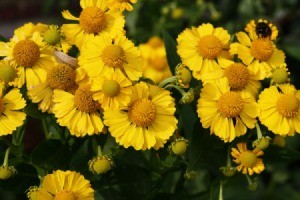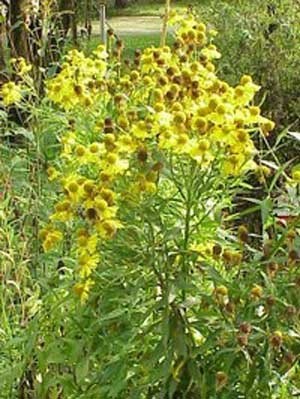| Botanical Name: | Helenium |
| Life Cycle: | perennial |
| Planting Time: | summer and fall |
| Height: | 2' to 4' |
| Exposure: | full sun |
| Soil: | moist, well-drained soil is best; plants growing wild are adaptable to drier soil conditions |
| Hardiness: | best in zones 3-8 |
| Bloom Time: | mid summer to fall |
| Flower: | daisy-like flowers in yellow, bronze, orange, red; some hybrids have solid centers with colored tips |
| Foliage: | green |
| Propagation: | seeds or division in spring or fall |
| Suggested Use: | beds, borders, cut flowers, butterfly garden and fillers |
| Growing Hints: | Purchase plants from nurseries in summer and fall or start seeds indoors several weeks before last frost date in the spring. Plants should be spaced 12 inches apart and mulched with 3 inches of compost around their base to help keep their roots moist. Pinch stems back by 8 to10 inches in June (just above a new let of leaves) to encourage bushier growth. Remove spent foliage and prune stems in the spring. |
| Interesting Facts: | The name "sneezeweed" comes from the fact that the leaves and flowers of Heleium were once used for snuff. The flowers attract both bees and butterflies. Closely related to the sunflower, Heleium grows wild in the western mountain states and can be toxic when small amounts are ingested by grazing livestock over an extended period of time. |

